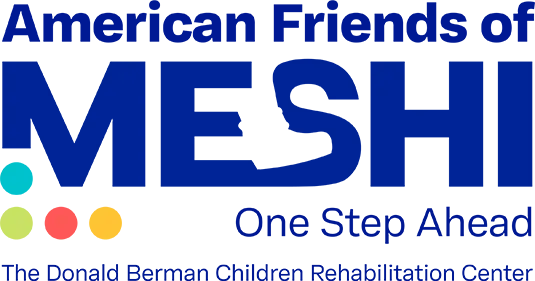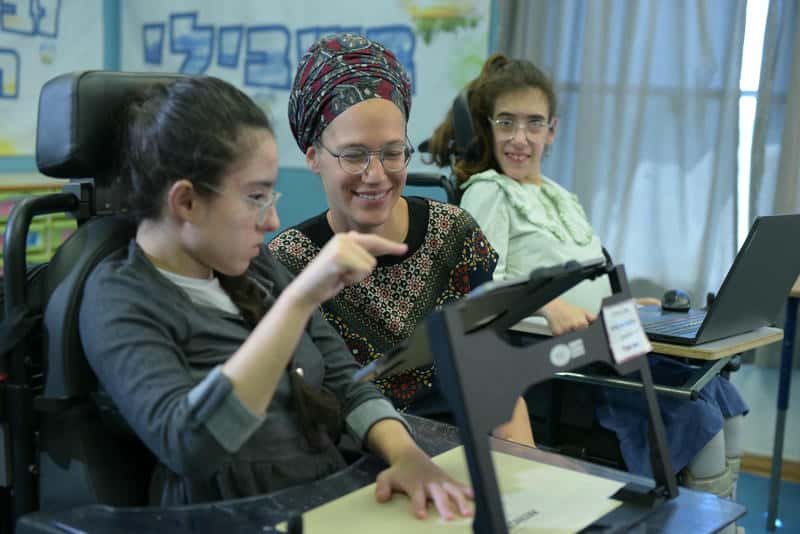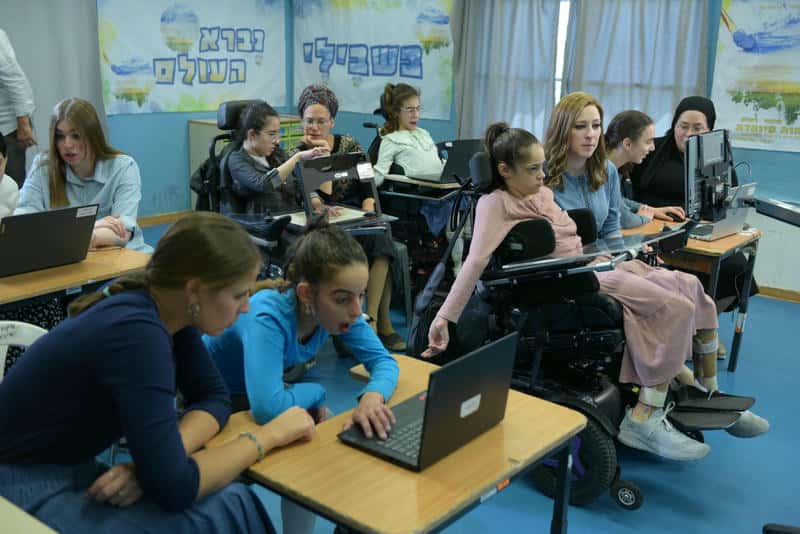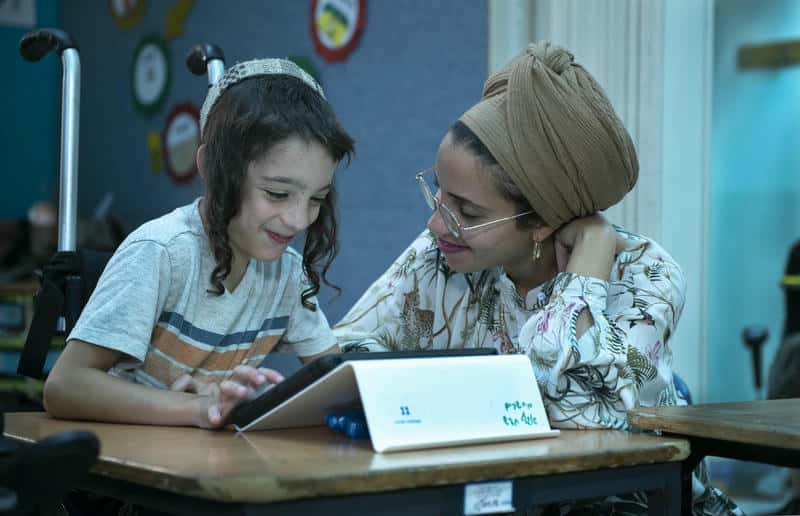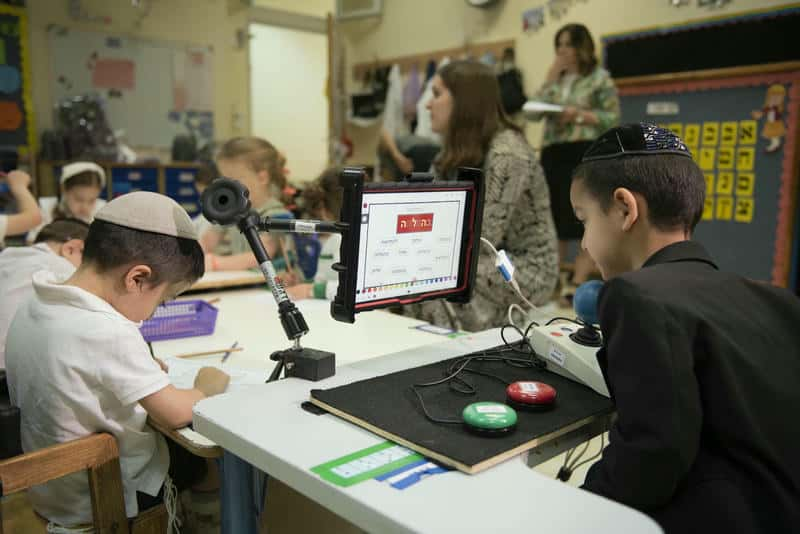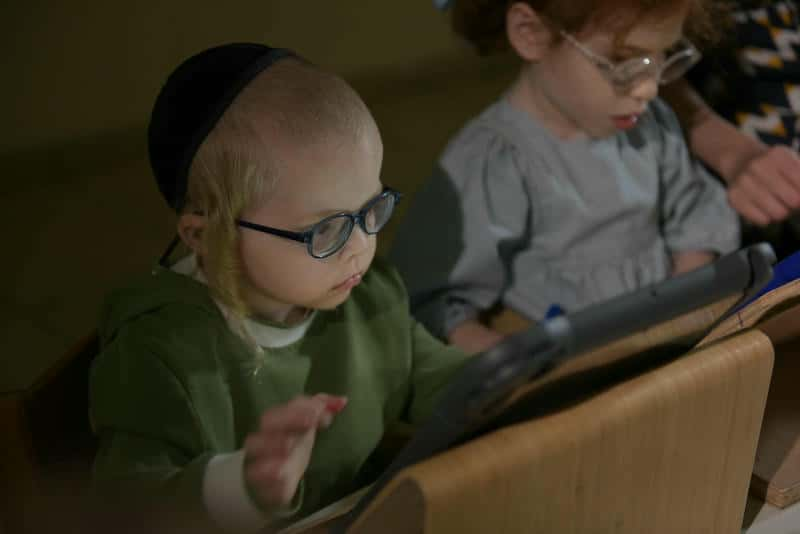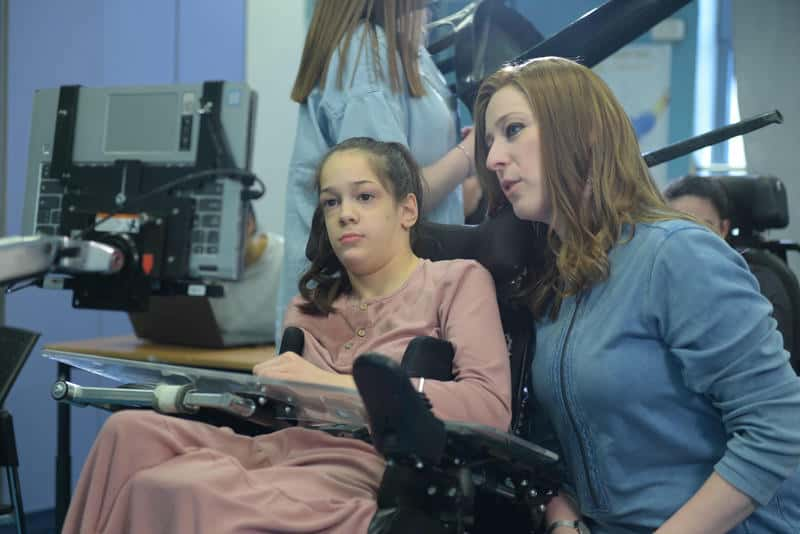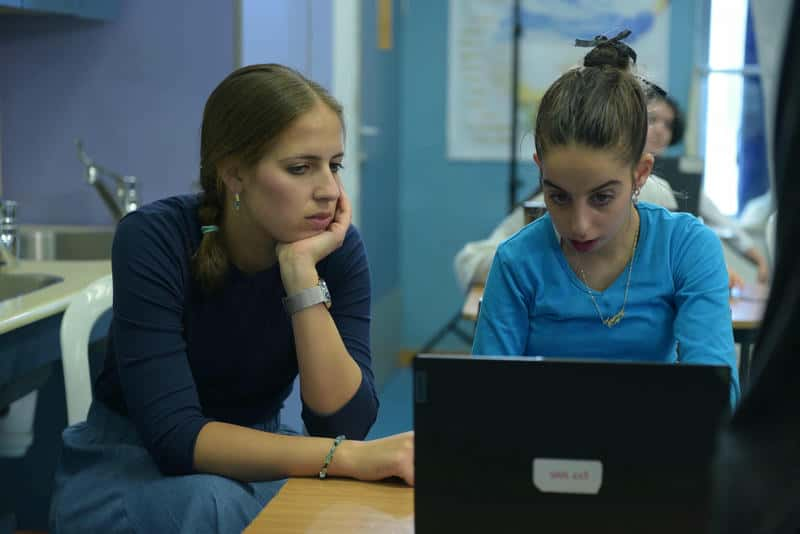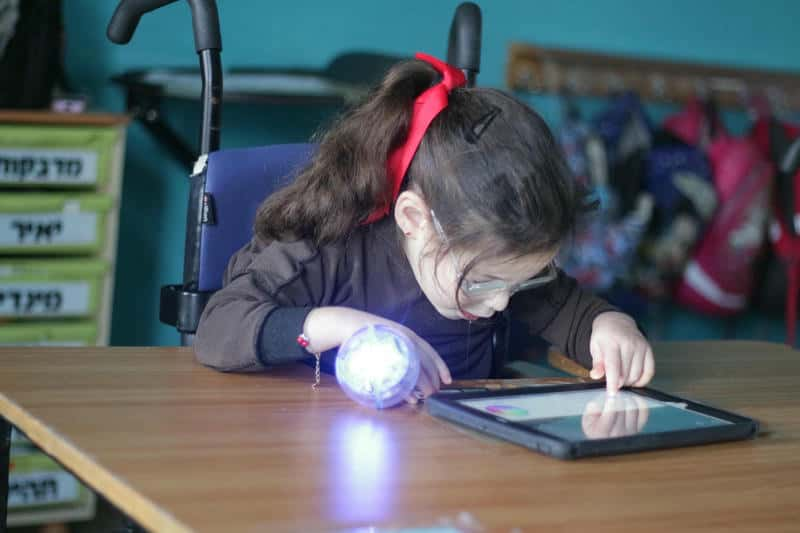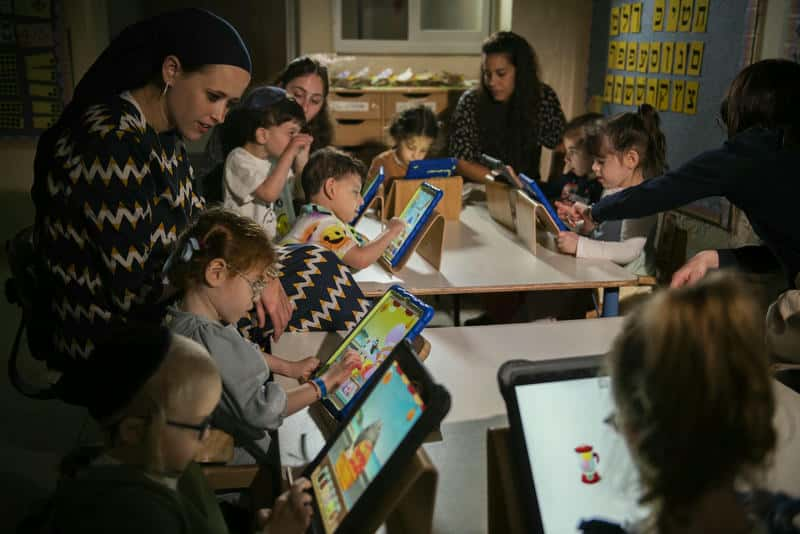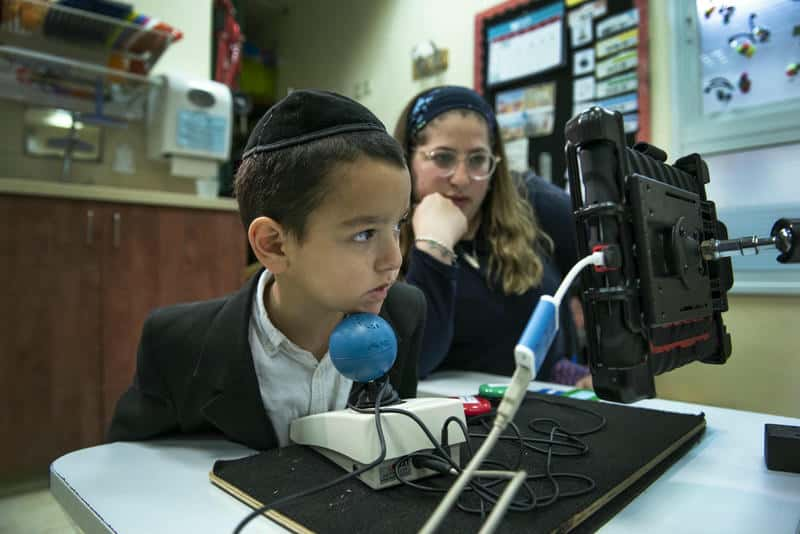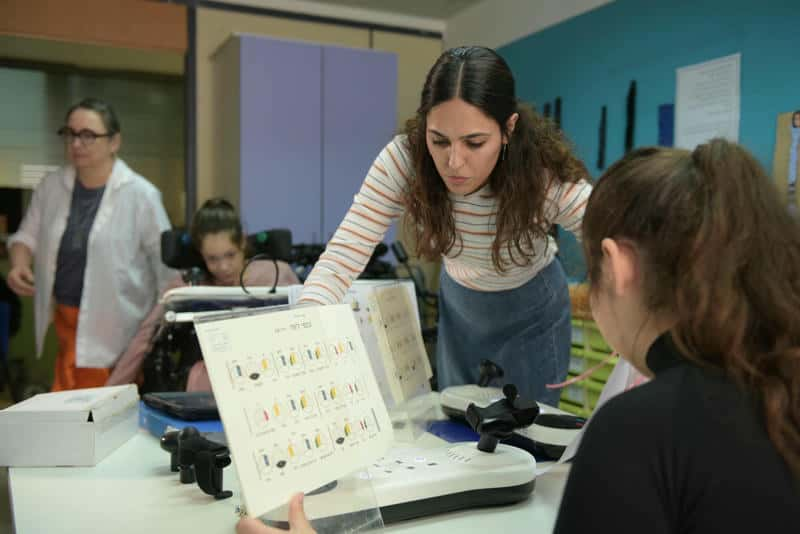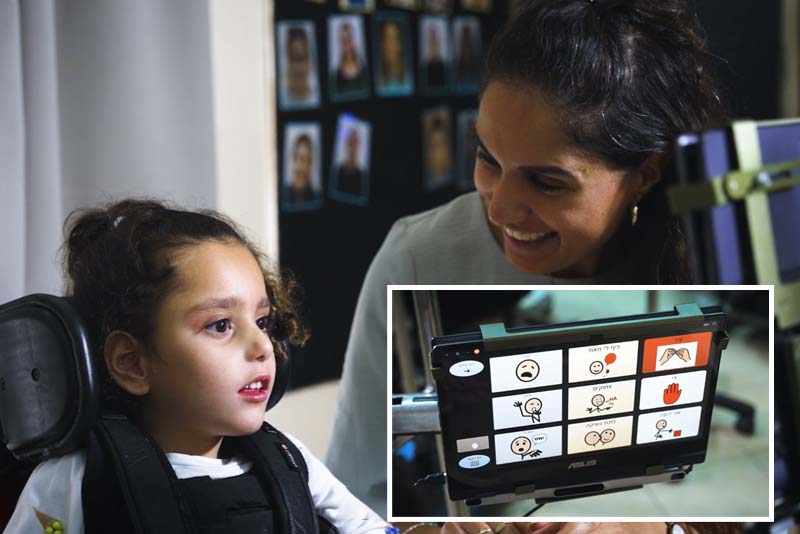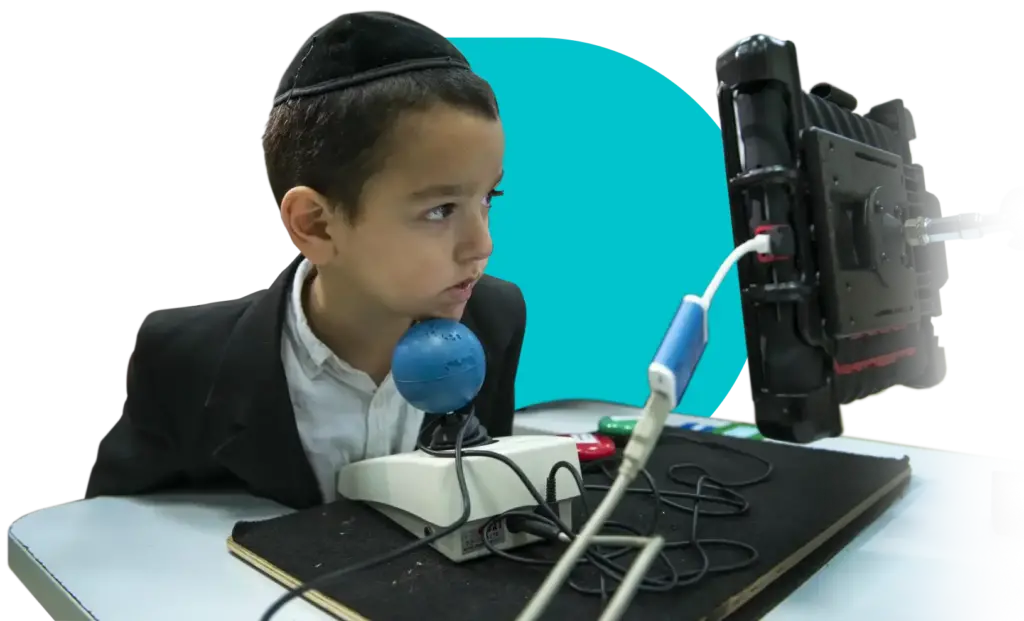
דף הבית 〱 Areas of Activity 〱 Assistive Technology
Assistive Technology
Within Meshi’s holistic circle of care, assistive technology teams implement advanced tools that support cognitive functioning—expanding each child’s capacity for independence and participation across all life settings.
Meshi invests significant resources in advanced assistive technologies and their effective implementation—as part of the Meshi approach. Dedicated Assistive Technology teams work within the multidisciplinary framework, ensuring access to a wide range of solutions, as well as the professional expertise and personnel required to use them effectively.
The teams, composed of specialized educators and occupational therapists, identify the optimal tools for each child’s needs and goals, and guide them in acquiring the technical skills required to fully benefit from those tools.
To ensure consistent use across environments and full support at every cognitive and motor level, the teams also train the educational and therapeutic staff—showing them how to operate, adapt, and leverage these tools for communication, learning, therapy, play, occupation and leisure.
Consistent, effective integration of assistive technologies promotes the child’s ability to participate in daily life, by:
- Expanding independence and capability across all life domains
- Building technological skills and opening paths to meaningful activities
- Customizing accessibility of content, teaching, and learning methods
- Enriching educational experiences to foster creativity and motivation
- Enhancing communication and broadening opportunities for expression
Structure & Practice
At each Meshi center, a dedicated Assistive Technology team provides the tools essential for every child to fully participate and reach their potential. An occupational therapist assesses needs, matches and adapts assistive tools, and trains children to use them effectively across all environments. Specialized educators harness these technologies for pedagogical and social purposes, seamlessly embedding them into daily routines. Together, they create accessible, engaging environments through ongoing multidisciplinary collaboration, guided by the team Head.
Their work is not limited by personal eligibility or external accessibility program criteria—ensuring assistive and innovative technologies are embedded both individually and at the class and system level.
Heads of Assistive Technology

Ofir Suissa
Occupational Therapist, Early Development Center

Batsheva Feldman
Specialized Teacher, Jerusalem School

Shirley Penso
Occupational Therapist, Bnei Brak School
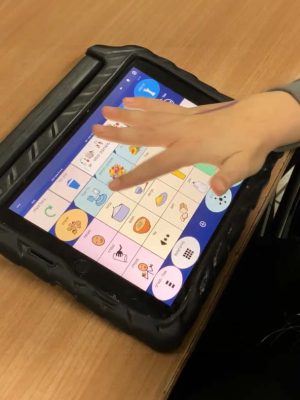
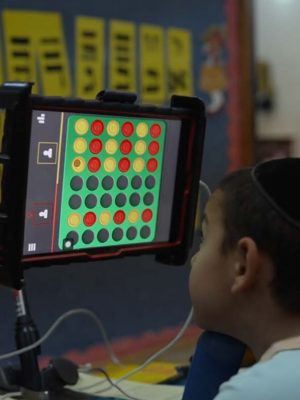
From Early Steps to Complex Skills
The wide range of assistive technologies available at Meshi is thoughtfully deployed—ensuring an optimal matching between their benefits and the needs of each child and group.
In early childhood, technologies are introduced gradually, with the sole purpose of enabling every child to actively engage in daily routines. From iPads to eye-tracking systems, tools are fully adapted to support emerging abilities, opening opportunities for learning, play, and early communication.
By school age, technologies play a far more central role, facilitating increasingly complex skills. Customized keyboards and mouse alternatives serve as main writing tools, while learning environments are largely digital and interactive. Diverse technology-driven fields—such as robotics, 3D design, and music—are offered as meaningful activities and adapted occupational pathways. Learning, play and even therapy are enriched through green screens, virtual reality (VR), and augmented reality (AR)—creating engaging, multisensory experiences.
Innovation at Meshi
Robotics and STEM Learning
Meshi offers a wide range of advanced robots for both education and leisure, emphasizing STEM-based experiential programs—an integrated learning process of Science, Technology, Engineering, and Mathematics.
Especially popular is the SPRK+ educational robot, which engages students in immersive learning of coding, programming, and problem-solving through sensors, LED lights, and iPad-based controls. While supporting the acquisition of core STEM concepts, it also enables experiences otherwise out of the children’s reach—like playing tag or “land and sea”.
Globally recognized as innovative and groundbreaking, STEM education at Meshi opens new, valuable leisure and occupational opportunities—strengthening children’s potential for meaningful community inclusion. These goals are further advanced through diverse, specialized group programs, such as Arcana music and Paralympic sports, alongside unique initiatives for inclusion in community and mainstream education.
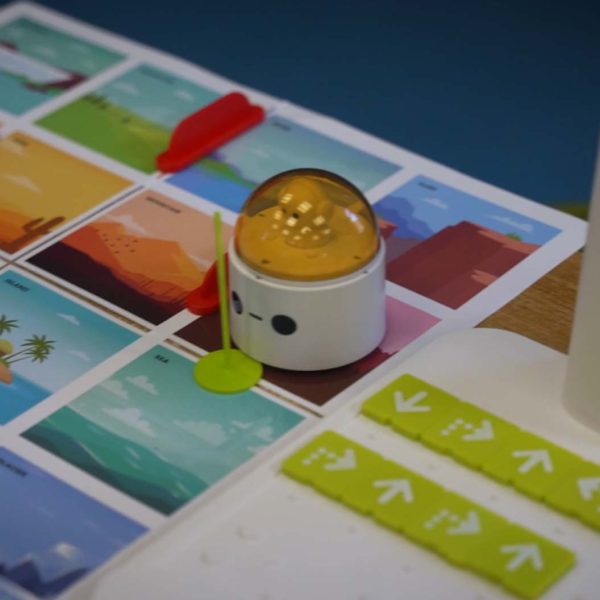
Virtual Reality in Physiotherapy
Through consistent multidisciplinary collaboration, Meshi’s assistive technology teams seamlessly align cutting-edge technologies with children’s developmental and rehabilitative goals. A prime example is the extensive use of Virtual Reality (VR) in physiotherapy.
At Meshi schools, physiotherapy teams harness VR applications to encourage movement, social interaction, and motor skill development. Daily practice integrates game-based tools—such as interactive floors, VR goggles, and dedicated systems like Bibo and Wii. These significantly boost students’ motivation, while serving targeted therapeutic goals and advancing functional outcomes. VR games controlled by a steering wheel, for instance, directly support balance improvement and hand function development.
Meshi’s physiotherapy teams also pioneer additional innovative methods—from TheraSuit and Spider therapies, to unique multidisciplinary programs providing emotional support and post-intervention rehabilitation.
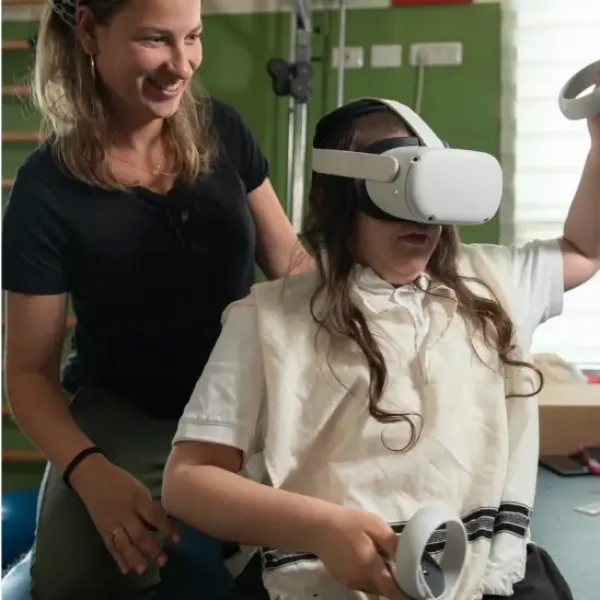
Augmented Reality for Experiential Learning
Meshi’s educational and assistive technology teams collaborate daily to harness innovative technologies, such as Augmented Reality (AR), for accessible and actively engaging learning environments.
Students and staff alike have access to a variety of AR tools via iPads, AR glasses, and interactive projectors— enriching pedagogy with immersive experiences that boost students’ motivation to learn, participate, and explore. The technologies available allow the teams to fully adapt to each goal— shaping the digital elements, the interactions they create, and the way they blend into the physical space. This makes experiential learning truly tailored, whether individually, in groups, or across all cognitive and motor levels
AR thus joins Meshi’s wide range of innovative technologies—alongside advanced robotics, VR-based therapies, and diverse AAC (augmentative and alternative communication) solutions—opening new pathways for learning and participation.
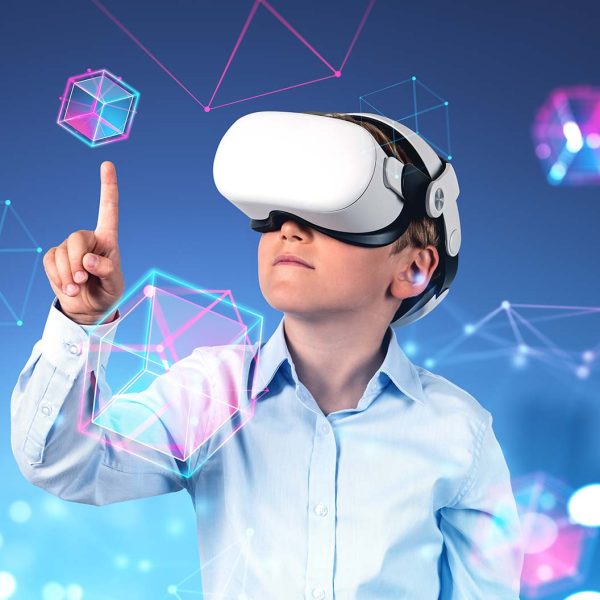
בקרוב
בקרוב

